M
MortgageMan
Guest
As I posted earlier, we were helping the DWR this weekend at Strawberry by certifying boats to make sure that they were free of these invasive Zebra and Quagga Mussels. These mussels need to be taken seriously or our fisheries and reservoirs are going to get hammered by them. We need to educate one another so that we can keep these creatures from spreading any further.
Right now, it is very easy for boaters to lie and say that they have not been to Lake Mead, Havasu or any other infected lake in the last 30 days just so they can launch their boat. As boat owners, we need to police ourselves just as we do against poachers because these mussels can destroy the fish and ruin our lakes just as a poacher does big game animals. One adult mussel can lay over one million eggs each breeding cycle which the offspring can then breed and reproduce in as little as 4 months. They spread like wild fire.
Please make sure that you self certify your boat at every lake that you go to. The Utah DWR has people at most major ramps but they can't be everywhere. The DWR should have signs and papers at almost every lake by now too. Most of the people that we talked to this weekend at Strawberry had little or no knowledge about these mussels.
The response we received at Strawberry was awesome and every fishermen there was happy to ceritfy and make sure these mussels stay out of the lake. I think we got the info out there this weekend but would like to encourage all boaters to help do their part by educating one another.
There was a recent poll done at infected Lake Havasu (I believe) to see where boaters were headed next. Lake Powell was #1 or close to it. Pineview, Utah Lake, and many other smaller lakes in Utah were very high on the list. These mussels are knocking on Utah's door. With all of our help we can keep them out. I have no other reason to post this besides being a concerned boater.
By the way - decontamination is free at lakes besides Lake Powell ($50 I believe).
http://wildlife.utah.gov/news/07-03/quagga.php
http://www.100thmeridian.org/certificate.asp
Please watch - http://100thmeridian.org/Video/DMAM2008_WM.asp
Right now, it is very easy for boaters to lie and say that they have not been to Lake Mead, Havasu or any other infected lake in the last 30 days just so they can launch their boat. As boat owners, we need to police ourselves just as we do against poachers because these mussels can destroy the fish and ruin our lakes just as a poacher does big game animals. One adult mussel can lay over one million eggs each breeding cycle which the offspring can then breed and reproduce in as little as 4 months. They spread like wild fire.
Please make sure that you self certify your boat at every lake that you go to. The Utah DWR has people at most major ramps but they can't be everywhere. The DWR should have signs and papers at almost every lake by now too. Most of the people that we talked to this weekend at Strawberry had little or no knowledge about these mussels.
The response we received at Strawberry was awesome and every fishermen there was happy to ceritfy and make sure these mussels stay out of the lake. I think we got the info out there this weekend but would like to encourage all boaters to help do their part by educating one another.
There was a recent poll done at infected Lake Havasu (I believe) to see where boaters were headed next. Lake Powell was #1 or close to it. Pineview, Utah Lake, and many other smaller lakes in Utah were very high on the list. These mussels are knocking on Utah's door. With all of our help we can keep them out. I have no other reason to post this besides being a concerned boater.
By the way - decontamination is free at lakes besides Lake Powell ($50 I believe).
http://wildlife.utah.gov/news/07-03/quagga.php
http://www.100thmeridian.org/certificate.asp
Please watch - http://100thmeridian.org/Video/DMAM2008_WM.asp




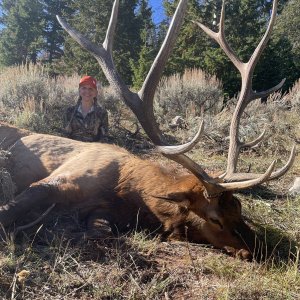

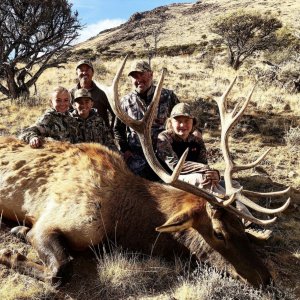
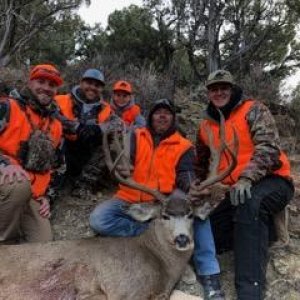
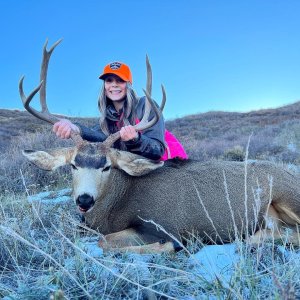

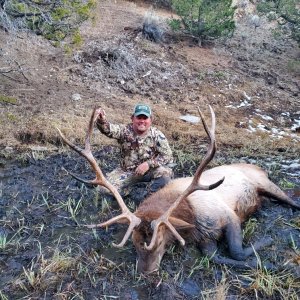

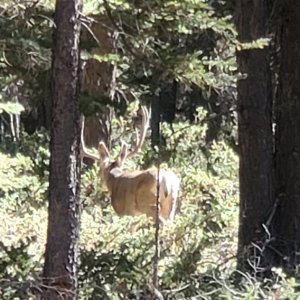
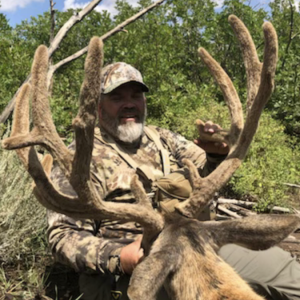
![IMG_20161123_155032041_HDR[1].jpg](/xf/data/xfmg/thumbnail/31/31959-28b49492193dcdcdcc7501f046a6306d.jpg?1673638202)